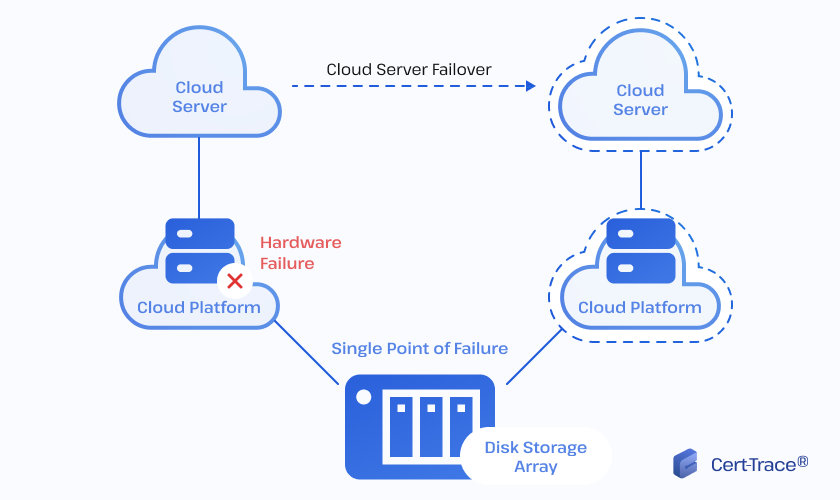The future is in the cloud, certainly when it comes to document storage. The days of having warehouses or even just storage rooms full of boxes and filing cabinets full of archived legal and financial information are being consigned to the past as more and more industries move to cloud storage.
The benefits of document digitization are clear and a cloud-based solution offers the combination of cost savings, increased efficiency and the ultimate security, making it an attractive option for any industry. But which industries in particular would benefit from a shift to cloud-based storage?
In this blog, we’ll pick out some industries that should be looking to the cloud for the future of their document archiving needs.
By putting your users at the center of your design process, you can create products that meet their needs, exceed their expectations, and foster brand loyalty. Don’t let outdated design practices hold you back from achieving business success. Embrace new technologies, prioritize UX design, and watch your business thrive in today’s digital landscape.
Which industries’ move to cloud storage should be next?
According to Statista, by 2022 the cloud was already storing more than 60% of all corporate data, which shows just how far the shift has already gone from the days of paper to the world of cloud storage. Many industries’ move to cloud storage is already well underway, but which ones should be leading that charge?
Here’s our suggestions:
1. Financial industry
Initially, the financial industry was one of the more cautious about the switch to a cloud-based solution, preferring to rely on its legacy solutions as well as expressing concerns about regulatory compliance and data privacy. But as its customers are becoming ever-more comfortable conducting their business online, the industry is realising the potential of cloud storage.
Far from putting them at risk of compliance or privacy issues, banks are finding that moving to the cloud is actually helping both of those areas with enhanced security and compliance that’s easier to manage. It’s also helping with the speed of transactions and improving how they are able to serve their customers.
2. Healthcare industry
The healthcare industry is another sector that has been rapidly embracing the digital world, particularly since the pandemic, with document sharing between departments working so much more smoothly in the cloud than with paper files needing to be manually moved around hospitals.
It’s not just the internal management of patient data that demonstrates the benefits of the cloud, but also the way it can be used with tools like wearable technology to monitor health and instantly report on it. No wonder the global cloud market for the healthcare industry is predicted to have grown by $25.54 billion in the four years to 2024.
3. Retail industry
In the retail industry, the potential benefits of cloud storage are clear. Inventory management is a huge challenge for retailers of all sizes, especially those spread out across states or even countries and continents. A cloud-based solution helps multiple sites manage their data collaboratively as well as storing important customer data safely and securely.
This storage of data in one central location also makes it easier for retail businesses to use that data strategically, processing, segmenting, analyzing and targeting it as necessary to optimize sales and marketing campaigns. All of this would have been possible before, but on smaller scales, with more limited and localized datasets, meaning it would have less potential for impact.
4. Logistics industry
Within the logistics industry, the potential for the cloud to revolutionize processes is enormous. Having instant access to data and documentation at the tap of a screen, anywhere on the globe is a transformative development, improving efficiency, customer service, reducing costs and increasing agility.
It can also help with improved decision-making at all levels of a logistics business, from staff on the ground (or at sea, or in the air) to the boardroom, because data can be stored, shared, analyzed and interpreted in real time. This can help with the allocation of resources – potentially through automation – by identifying trends and avoiding bottlenecks or delays.
5. Energy industry
For businesses in the energy industry cloud storage can work alongside technology that offers smart grid management, predictive maintenance and automated energy management systems.
This is another sector where the ability to manage and analyze large amounts of data is crucial to improving processes and the service to customers. Gaining real-time insights from national energy systems and being able to share this data and respond instantly as well as using machine learning to automate future responses means that energy businesses can be more reactive than ever before.
6. Educational industry
As well as healthcare, the educational industry had to make big shifts to the cloud during the pandemic when lockdowns moved a lot of learning to remote settings. Those days might be behind us now, but the lessons learned (literally) have been incorporated into the way schools and colleges operate now.
Using cloud-based storage solutions, educational settings can more easily share files, programs, digital lesson plans and information with students. This has also helped engage and share documents with students who might learn from home rather than at school, ensuring the educational industry can be more inclusive.
7. Automotive industry
As with retail, inventory management is key within the automotive industry and cloud storage makes this much more of a smooth process. Whether a customer is looking for a particular model at a dealership or a specific car part at a garage, if those locations don’t have them, it’s a simple job to use the cloud to quickly search through the data to help them find what they need.
There’s plenty of other data that can be easily shared through cloud document storage, from guides to repairing vehicles to information that salespeople need at their fingertips, all of which ensures that customers get the service they wanted and keep coming back for more.

Why are these industries moving to the cloud?
So we’ve covered some of the cloud-based storage benefits for industries of all types, but what other reasons are there for them making this shift? Paper document storage problems are certainly a big factor.
Storing everything you need on paper means having to have a large amount of physical storage space, as well as opening yourself up to the risk of security issues or accidental damage or loss. It’s also far less efficient and lacks all of the benefits mentioned above for the various industries we’ve covered.
A cloud-based solution is more secure and more efficient, helping your business – whatever the sector – be more streamlined, more resilient and ready to take a bit step into the future instead of being tied to the past.
So the real question isn’t why all of these industries are moving to cloud storage, it’s why any sector wouldn’t do so? Cert-trace® offers all of these benefits with the enhanced security of a blockchain-powered cloud solution for document digitization, archiving and sharing.
If you want to find out more about how your business can benefit from making that shift to the cloud, get in touch with our Cert-trace® team at info@tracert.digital.
How useful was this post?
Click on a star to rate it!
Average rating 5 / 5. Vote count: 571
No votes so far! Be the first to rate this post.


